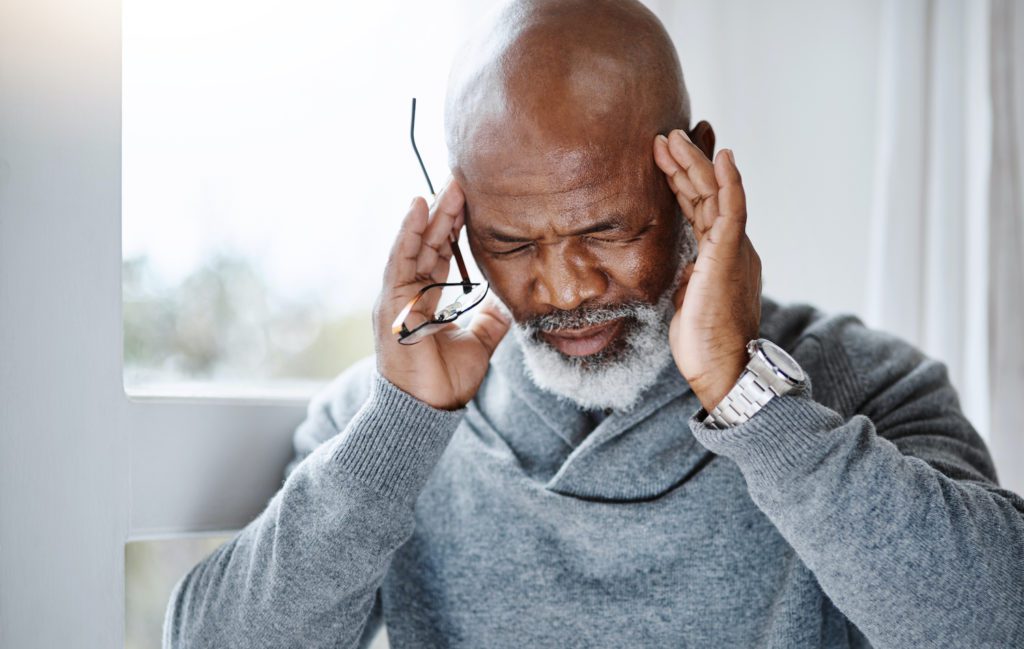Sleep disorders often go hand-in-hand with temporomandibular disorders (TMD), often called TMJ. Patients experiencing the symptoms of sleep apnea or diagnosed with sleep apnea commonly show signs of a bite problem due to teeth grinding. Dr. Duling provides comprehensive diagnostics and therapies for both sleep apnea and TMJ disorders to resolve symptoms, improve your health and restore your sleep. Dr. Duling offers sleep apnea treatment to patients in Owens Cross Roads, AL.

Sleep Apnea and TMD: What is the Connection?
Patients who are at risk for or have been diagnosed with sleep apnea often share common traits or characteristics including smaller airways or jaw structures. It is often hard to say which comes first, but studies have shown that while not everyone with TMJ has sleep apnea, almost half of the patients with a sleep disorder also have a TMJ disorder.
Dr. Duling has the advanced training necessary to provide a thorough evaluation of your airway, jaw structure, and the function of the bite. These are the important components of your oral health that impact your risk for sleep apnea and TMD.
A smaller airway makes it more difficult for you to breathe naturally during sleep when soft tissues at the back of the throat can collapse as the body relaxes. The body often compensates by moving the jaw forward to open the airway which can lead to increased muscle tension in the jaw joints.
The tension can cause teeth grinding, jaw clenching, and other common symptoms of TMJ which contribute to your sleep problem. Treating the whole oral system is the key to not only resolving discomfort and jaw pain but allowing the airway to remain open and facilitate normal breathing.
Dr. Duling uses oral appliance therapy (OAT) to address the root cause of your sleep disorder and to resolve TMJ-related symptoms such as teeth grinding. Designed to reposition the jaw during sleep, a custom oral appliance will promote better breathing and allow the jaw muscles to relax.
Why Choose Dr. Duling?
Just as with anything in life, choosing the right resource to solve your problem can make a big difference in your outcome. Choosing Dr. Duling means choosing a dental health professional who understands the connection between all aspects of your oral system and how to interpret oral signs of sleep disorders. She is uniquely equipped in several ways to diagnose and treat your sleep or bite problems and resolve your pain.
- Personal experience: Dr. Duling has personally been diagnosed with a TMD and understands how patients feel when discussing their symptoms.
- Advanced training: A Diplomate of the American Academy of Dental Sleep Medicine (AADSM), Dr. Duling is one of the only local dentists with in-depth training in sleep disorders and oral appliance therapy.
- Compassionate care: Our goal is to provide not only an exceptional result but to deliver compassionate care to all of our patients. Dr. Duling is known for her personal approach and for taking the time to fully understand the unique needs of each patient.
Sleep Apnea and TMD FAQs
Does a TMD mouthguard help with sleep apnea?
It can, yes. TMD oral appliances and sleep apnea oral appliances have similar goals. They both want to reposition the jaw so that the bite is even, the teeth don’t grind, and the muscles in the back of the throat don’t collapse. One oral appliance can help both conditions.
Can a CPAP machine make TMD worse?
Yes, this is one of the reasons we primarily focus on oral appliance therapy. A CPAP machine puts continued pressure on your chin due to the strap that keeps the mask on your face. The jawbone is pressed back and can irritate your TMD.
Is my TMD causing my sleep apnea?
It’s possible. When you have TMD, your jaw joint is frequently in motion overnight. Patients usually grind and clench their teeth throughout the night. When you have sleep apnea, your body just the jaw forward. But since your jaw may not be fully functional due to TMD, this failsafe your body has may not always work.
Solutions for Sleep Apnea & TMD in Owens Cross Roads
Schedule a dental consultation with Dr. Duling to discuss your concerns and explore your treatment options. This may be the first step in a journey to better sleep, less pain, and rediscovering your best quality of life.
